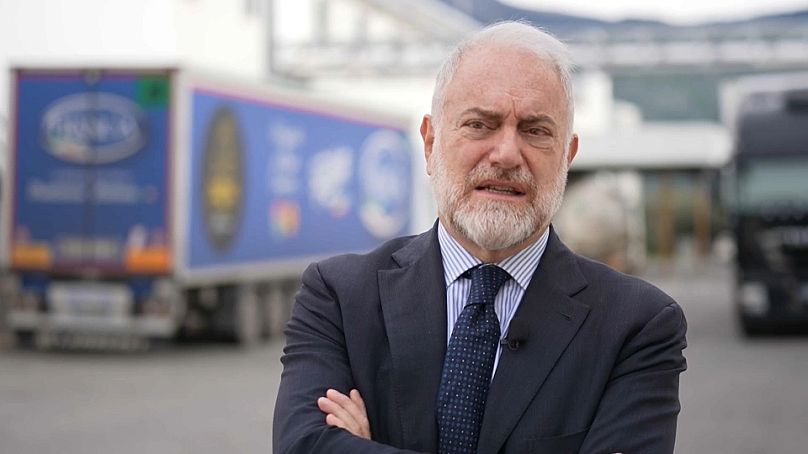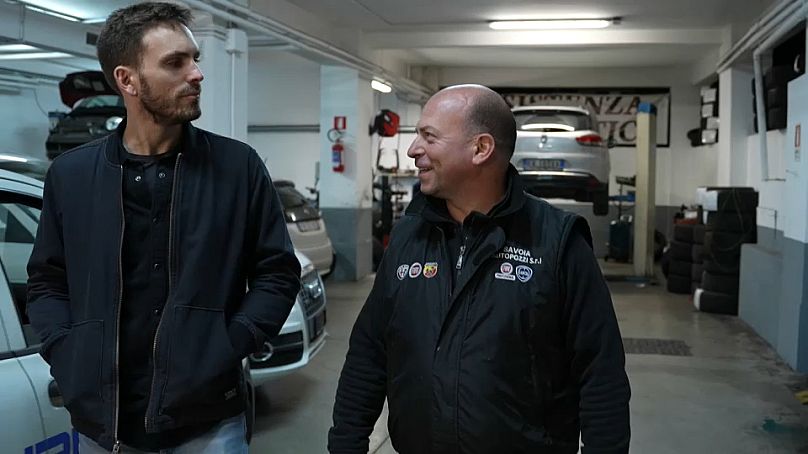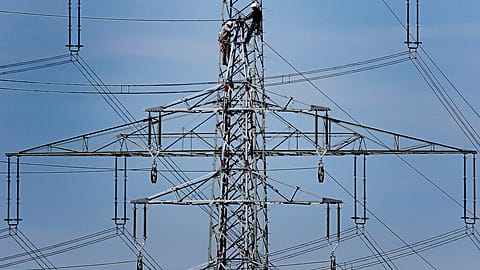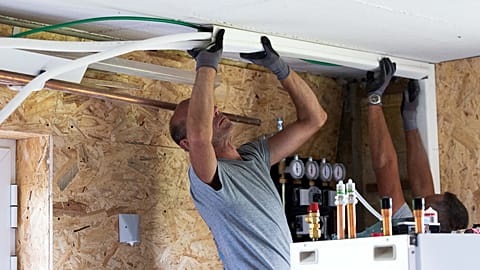The EU has introduced measures to help shield citizens from the impacts of exorbitant energy bills and global energy market disruption. But are they working?
The energy crisis sparked by Russia's war in Ukraine continues to loom large over European economies, businesses, and consumers. Europe’s high energy prices have fuelled an 8.5% annual inflation rate in the euro area. In Italy, the cost of living increased by 10.9%.
These punishing price hikes are not only hurting consumers. They also impact energy-hungry companies, like the mozzarella-making factory Gruppo Francia on the outskirts of Rome.
We have 250 employees in our two plants," Massimo Panagia, Chief Executive Officer at Gruppo Francia Latticini told Euronews. "We produce 20 million kilos of cheese in different formats and specialities."
The CEO explained that his energy bills in 2022 were three times higher than the previous year. While investments in biogas and solar panels managed to partly reduce these costs, they still weigh heavily on companies like his.
"In actual numbers, it means €1.3-1.4 million extra cost, [which] was unpredictable. As a result, the cost of our products has been impacted significantly," Panagia added.
Are EU measures to tackle the energy crisis proving effective?
Global energy market volatility and soaring prices have prompted the European Commission to introduce measures aimed at easing the burden for EU households and companies who are struggling to make ends meet.
To support the EU’s economy after Russia’s invasion of Ukraine, the European Commission adopted the State Aid Temporary Crisis Framework, in March 2022.
It allows Member States to grant limited amounts of aid to companies affected by the war or the sanctions, offer liquidity support for businesses and compensate for the high energy prices experienced by companies.
In Italy, more than €50 billion worth of state aid has been approved by Brussels, including tax credits.
"Given the energy bill, every company could calculate 30% of this amount, and use this 30% as credit to compensate in the following months with the tax to be paid to the government," Massimo Panagia revealed. "This mechanism, unfortunately, didn’t work that well on the short-term cash flow."
This feeling is shared by Mauro Savoia, the manager of a family-owned automotive repair shop in Rome. After seeing his energy bills double in one year, he also benefited from a tax credit but says more should be done to help small businesses.
"There was no financial relief of any kind," said Mauro Savoia, owner and general manager of Autopozzi Savoia. "We expected at least some economic aid or grants to help companies at the end of the year."
Assessing and rethinking Europe's energy system
The war in Ukraine has highlighted the need of rethinking energy supplies, energy consumption, and energy output.
"Over the last months, energy prices have been decreasing sharply across Europe. So families will, in the coming weeks and months, see lower energy bills. But those energy bills will still be two times, three times higher than what we used to see in the past," explained energy expert Simone Tagliapietra, who is a Senior fellow at Bruegel think tank in Brussels.
Despite the benefits that the EU's Temporary Crisis Framework can bring to companies struggling to stay afloat amid exorbitant energy bills, some experts have raised concerns that it could lead to market distortion.
"During times of crisis, one of the typical responses of Europe is to loosen a bit these state aid rules. The problem is that when you loosen and when you water down the competition policies in Europe, the state aid rules, for example, typically the ones benefiting the most are the two biggest countries, Germany and France, which are the ones, namely Germany, that have the fiscal space, so-called, the money to spend to subsidize their companies more than others," Tagliapietra explained.
"So during 2022, we end up in a situation where 80% of the state aid was allocated by Germany and France only."
When asked if he thought that these measures were enough to help businesses ride out the storm, Tagliapietra said “There was a mix of intervention, so the tax credit was one, but then there was the reduction in the VAT as well. Companies have seen their energy bills increase by a factor of three or even four at a certain point in time. But we need to consider that without the intervention of the government, the energy bills would have increased much more than that.”
The energy crisis has revealed vulnerabilities in Europe's electricity market. In January, the EU launched a consultation in order to work on reforming the market, and better shield consumers from price shocks. But Tagliapietra told Euronews that this alone will not be enough.
“We should not think that this will be the solution to our energy crises problems," he said. "Our energy crisis problem has been what? A mismatch in demand and supply for natural gas, namely after the Russian weaponisation.”
“So the only way for Europe to get out of this crisis over the next months in a sustainable manner is to fix this imbalance, which you do by lowering your demand and maximise the supply, alternatives. Which means building floating storage and gasification units, as Germany is doing. Which means signing new gas deals with LNG suppliers. Promoting solar energy to get rid of gas in electricity production, promote the rollout of heat pumps in our houses to get rid of the gas boiler. These are the only structural solutions to the energy crisis in Europe."





















